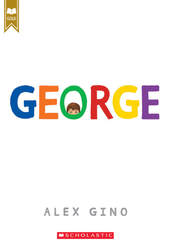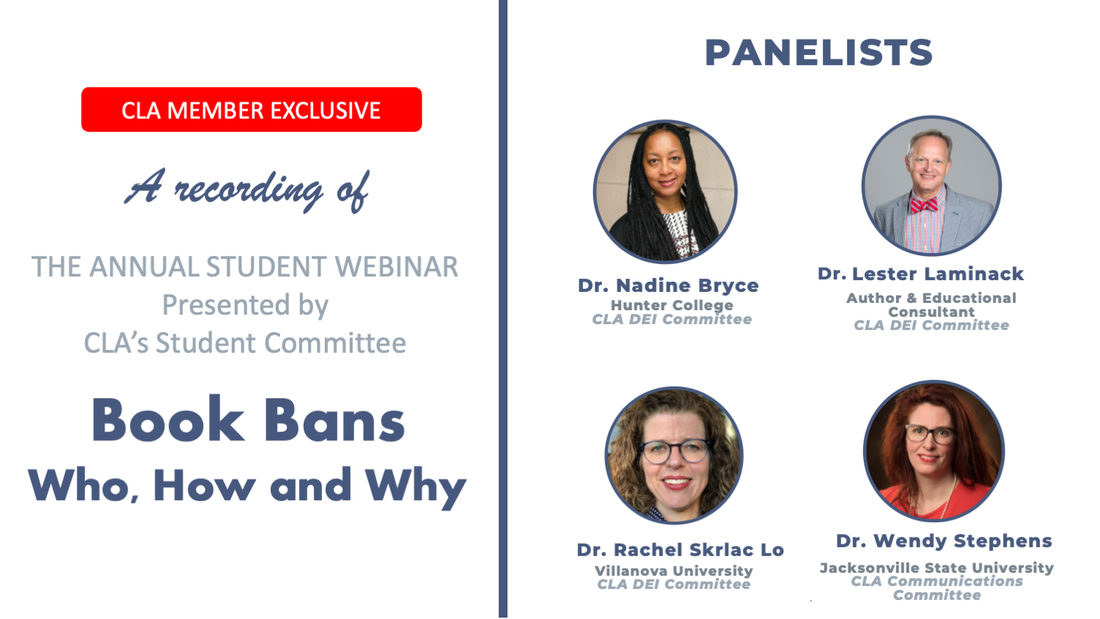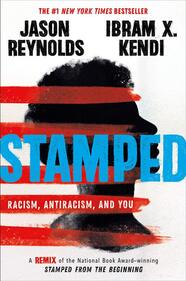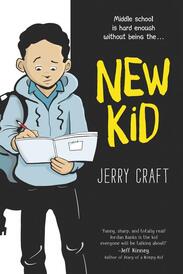By Emmaline Ellis, Laurie Esposito, and Jennifer SlagusIn response to an increase in attempts to ban and challenge various children’s and young adult books, the topic of this year’s Children’s Literature Assembly Student Committee (CLA-SC) Annual Student Webinar was “Book Bans: Who, How, and Why?” As a committee with diverse experiences, interests, and roles in the field of children’s literature, the CLA-SC members find these movements to be particularly concerning, as the targeted books are often those that feature characters who are LGBTQIA+, Black, or Hispanic. While some book challenges have received pushback, many others have been successful. These decisions made us wonder - how do books become banned? What is the reasoning supporting these bans? And, who are the decision-makers behind book bans? These burning questions were the guiding focus of this year’s CLA-SC Student Webinar. In order to learn more about the decision-making processes behind book bans, we enlisted the expertise of four esteemed panelists, all of whom are CLA Committee or Board Members. In this post, we summarize and highlight each panelists’ professional or personal experiences and insight as they relate to book bans, and conclude by sharing the informative and helpful resources shared throughout the Webinar. CLA Members can access a video recording of the webinar within the members-only section of the CLA website. Dr. Rachel Skrlac Lo
Our first panelist shared the story of a book challenge in her suburban Philadelphia school district. Dr. Rachel Skrlac Lo, Assistant Professor of Education at Villanova University and parent of a child in the district, described the district’s response when a fellow parent challenged Maia Kobabe’s Gender Queer. In violation of its own protocol, the district removed the book from the high school library pending review by an anonymous ad hoc committee. Various district stakeholders justified the challenge with concerns about potentially harmful psychological effects and age appropriateness. Dr. Skrlac Lo countered these unsubstantiated concerns with empirical data on the harm under-representation in schools causes LGBTQIA+ youth. Although Gender Queer was ultimately returned to the library’s shelves in June 2022, Dr. Skrlac Lo pointed out that a single complaint rendered the book inaccessible to all students for nearly an entire academic year. In concluding her presentation, Dr. Skrlac Lo focused on ways in which we can act against book challenges and bans in schools. She encouraged us to share our expertise through engagement in public discourse. For example, we could join community groups, attend committee meetings, write to legislators, and write op-ed pieces for local publications. Perhaps most importantly, she urged us to “resist and push against” deficit narratives as we listen to and support members of groups targeted by censorship efforts. Breakout Quote for Dr. Skrlac Lo: |
 Challenges to books and reading lists are proliferating. In recent conversations with students, educators, and school board members, folks have shared that book challenges are taking up valuable time, distracting from and interfering with learning, and creating new tensions in the classroom and in the boardroom. Students are denied access to texts while challenged books undergo reviews, and they often have no say over districts’ decisions. Teachers are asked to modify carefully constructed curriculum or face discipline. Administrators are drawing on policies that were not designed for this onslaught of challenges. According to the American Library Association, in 2021 George/Melissa (Gino) and Stamped (Reynolds & Kendi) were the two most challenged books. Jason Reynolds decries these challenges for denying children access to books. These books are in good company. Gender Queer (Kobabe), Maus (Spiegelman), New Kid (Craft), Fry Bread (Maillard) are a few titles on a quickly growing list. These challenges represent the carefully organized efforts of several groups, such as Moms for Liberty and Parents Defending Education, groups that purport to work for “the restoration of a healthy, non-political education for our kids”. Their goal is to incite moral panic and culture wars, framed as protecting innocent children from harm. This notion of harm is narrowly defined, namely to protect white heteronormative conservative families from having to acknowledge a broader world. Critics of these book challenges include storytellers, educators and librarians, teacher educators and other scholars, and students. Books provide access to new worlds and perspectives. They may challenge our beliefs or affirm them. They may disgust us, enrapture us, and all the places in between. A good library and curriculum has books that do all of these things. In schools, books are used to help us navigate the world and build our ability to think critically about who we all are. Book challenges deny all students the rights to access new worlds and develop these skills to critically interrogate their world. |
Institutional Resources to Reject Book Challenges
The NEA’s Code of Ethics, briefly
1. “restrain the student from independent action in the pursuit of learning”,
2. “unreasonably deny the student’s access to varying points of view”, nor
3. “deliberately suppress or distort subject matter”.
Additionally, educators must make an effort to:
4. “protect students from harmful conditions”,
5. “not intentionally expose the student to embarrassment or disparagement”, and
6. ensure all students have access to programs, benefits, and advantages regardless of “race, color, creed, sex, national origin, marital status, political or religious beliefs, family, social or cultural background or sexual orientation.”
The two remaining conditions are that educators:
7. do not seek private advantage from relationships with students, and
8. will respect students' privacy.
Using the Code of Ethics to Respond to Challenges
The adults behind the book challenges argue their children are harmed through the content of these books, and this harm can be manifested as feelings of discomfort, shame and embarrassment, or in exposure to ideas that may lead to “deviance”. According to Principle 1, then, these parents are claiming that being exposed to these books is a harmful condition (condition 4) that results in these children feeling embarrassed and disparaged whether due to sexual content of texts, such as in challenges to George/Melissa, or discovering the longstanding persistent impact of white supremacy, such as in Stamped (condition 5).
Yet, if schools were to succumb to these challenges, the result would be changes to curriculum and school resources that would unfairly deny benefits (condition 6) to students who identify differently from the mostly white, mostly straight, mostly Christian, mostly politically conservative, mostly American parents who are leading these challenges. Moreover, by shifting school curriculum and materials based on this loud but small group, schools would further violate the code of ethics by restraining independent action (condition 1), such as access to a diverse and representative library collection. Students would be denied access to multiple points of view (condition 2) by restricting the scope of content and voices. This suppression would distort subject matter (condition 3) and would impede student progress (condition 6). Removing books based on outcry of a small but politically-motivated group violates most of the conditions of commitment to the student in the NEA’s code of ethics.
Additionally, because educators must respect students’ privacy (condition 8), educators are guided by an ethical duty to protect students' identities because students warrant this protection of their full humanity. As such, educators must not be compelled to reveal which students need access to these books. We must trust educators when they say there are children who need these books.
So, which students need access to these books?
As CLA’s Position Statement on the Importance of Critical Selection and Teaching of Diverse Children’s Literature underscores:
Resisting book challenges, then, is not about supporting or denying an ideological position. It’s affirming our commitment to serve all students. By drawing on a code of ethics, or other institutional materials, educators can respond to these challenges with the support of their profession and an understanding that their desire to serve all students is morally and ethically just.
Donna Sabis-Burns, Ph.D., an enrolled citizen of the Upper Mohawk-Turtle Clan, is a Group Leader in the Office of Indian Education at the U.S. Department of Education* in Washington, D.C. She is a Board Member (2020-2022) with the Children's Literature Assembly and Co-Chair of the Diversity, Equity, and Inclusivity Committee.
Authors:
CLA Members
Supporting PreK-12 and university teachers as they share children’s literature with their students in all classroom contexts.
The opinions and ideas posted in the individual entries are those of the individual authors and do not necessarily reflect the opinions or views of CLA or the Blog Editors.
Blog Editors
contribute to the blog
If you are a current CLA member and you would like to contribute a post to the CLA Blog, please read the Instructions to Authors and email co-editor Liz Thackeray Nelson with your idea.
Archives
May 2024
April 2024
March 2024
February 2024
January 2024
December 2023
November 2023
October 2023
September 2023
August 2023
May 2023
April 2023
March 2023
December 2022
November 2022
October 2022
September 2022
August 2022
June 2022
May 2022
April 2022
March 2022
February 2022
January 2022
December 2021
November 2021
October 2021
September 2021
August 2021
June 2021
May 2021
April 2021
March 2021
February 2021
January 2021
December 2020
November 2020
October 2020
September 2020
August 2020
June 2020
May 2020
April 2020
March 2020
Categories
All
Activism
Advocacy
African American Literature
Agency
All Grades
American Indian
Antiracism
Art
Asian American
Authors
Award Books
Awards
Back To School
Barbara Kiefer
Biography
Black Culture
Black Freedom Movement
Bonnie Campbell Hill Award
Book Bans
Book Challenges
Book Discussion Guides
Censorship
Chapter Books
Children's Literature
Civil Rights Movement
CLA Auction
CLA Breakfast
CLA Expert Class
Classroom Ideas
Collaboration
Comprehension Strategies
Contemporary Realistic Fiction
COVID
Creativity
Creativity Sponsors
Critical Literacy
Crossover Literature
Cultural Relevance
Culture
Current Events
Digital Literacy
Disciplinary Literacy
Distance Learning
Diverse Books
Diversity
Early Chapter Books
Emergent Bilinguals
Endowment
Family Literacy
First Week Books
First Week Of School
Garden
Global Children’s And Adolescent Literature
Global Children’s And Adolescent Literature
Global Literature
Graduate
Graduate School
Graphic Novel
High School
Historical Fiction
Holocaust
Identity
Illustrators
Indigenous
Indigenous Stories
Innovators
Intercultural Understanding
Intermediate Grades
International Children's Literature
Journal Of Children's Literature
Language Arts
Language Learners
LCBTQ+ Books
Librarians
Literacy Leadership
#MeToo Movement
Middle Grade Literature
Middle Grades
Middle School
Mindfulness
Multiliteracies
Museum
Native Americans
Nature
NCBLA List
NCTE
NCTE 2023
Neurodiversity
Nonfiction Books
Notables
Nurturing Lifelong Readers
Outside
#OwnVoices
Picturebooks
Picture Books
Poetic Picturebooks
Poetry
Preschool
Primary Grades
Primary Sources
Professional Resources
Reading Engagement
Research
Science
Science Fiction
Self-selected Texts
Small Publishers And Imprints
Social Justice
Social Media
Social Studies
Sports Books
STEAM
STEM
Storytelling
Summer Camps
Summer Programs
Teacher
Teaching Reading
Teaching Resources
Teaching Writing
Text Sets
The Arts
Tradition
Translanguaging
Trauma
Tribute
Ukraine
Undergraduate
Using Technology
Verse Novels
Virtual Library
Vivian Yenika-Agbaw Student Conference Grant
Vocabulary
War
#WeNeedDiverseBooks
YA Lit
Young Adult Literature




 RSS Feed
RSS Feed